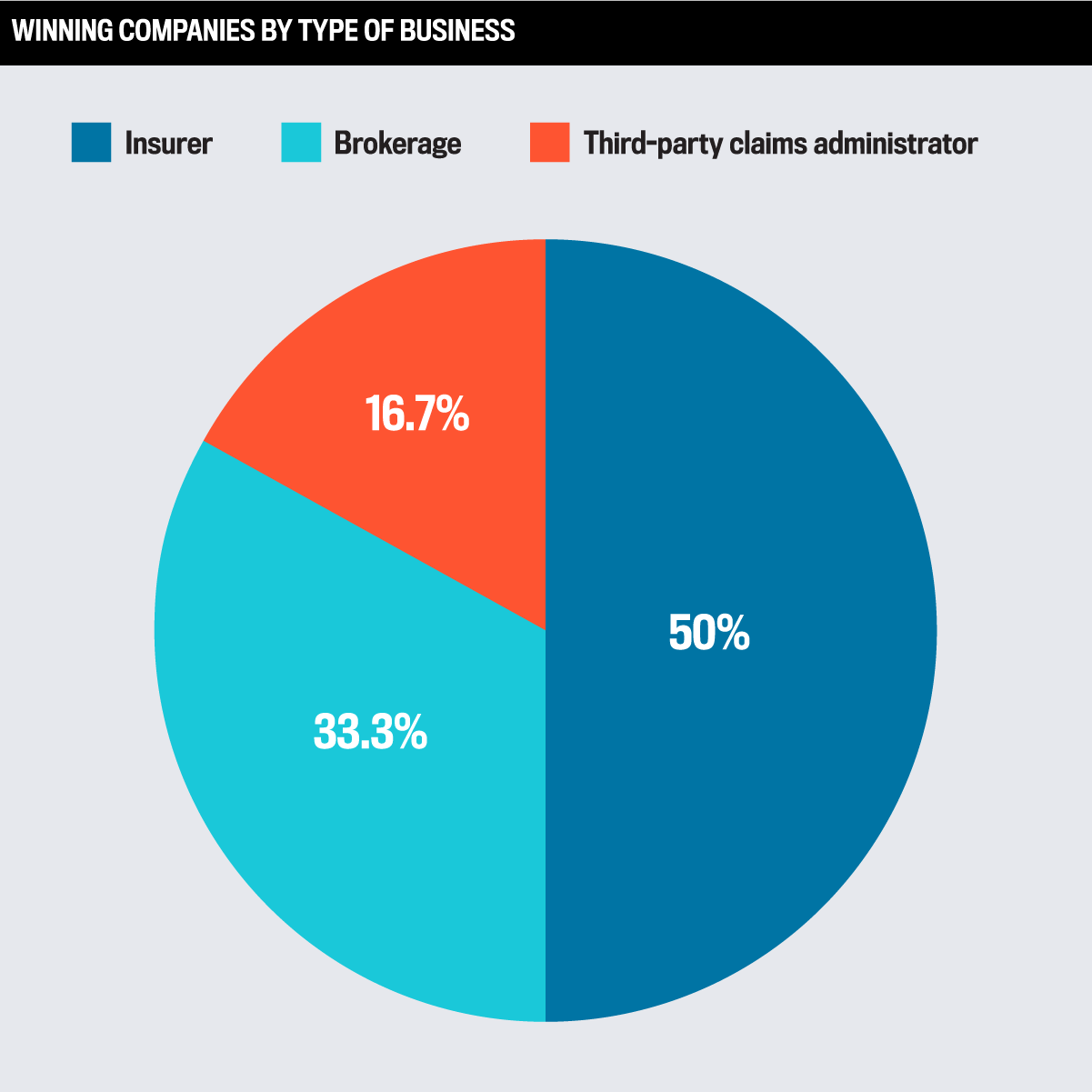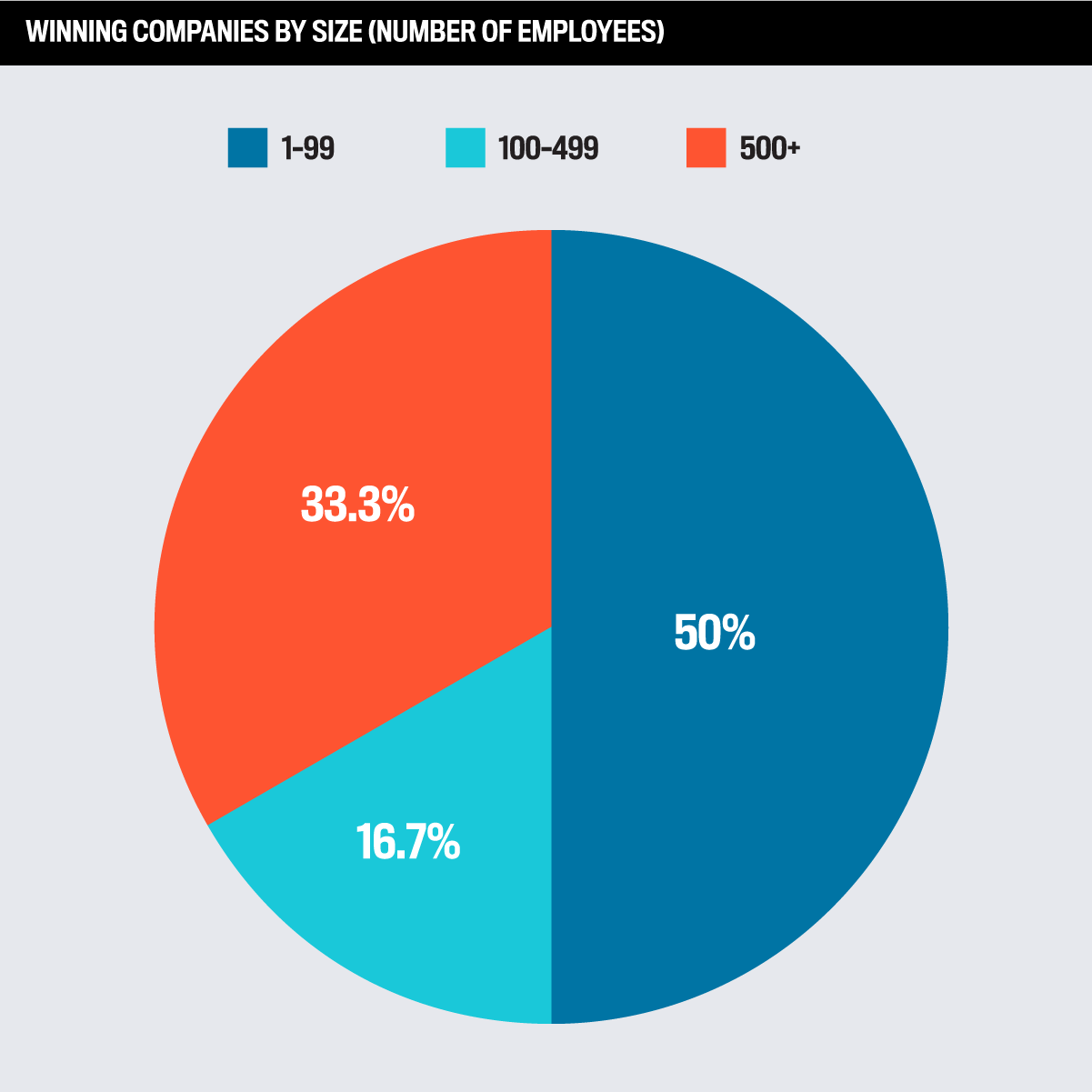
Top Insurance Employers 2022
Jump to winners | Jump to methodology
Cultivating Kiwi work cultures
Jacinda Ardern’s full-scale lockdown of Aotearoa at the height of the pandemic was seen by some as draconian. Nevertheless, it helped cap deaths at 63 as of March 2022 – “one of the lowest counts in the world,” according to NPR – and ease competition for jobs by eliminating migrant inflow. What’s more, under her watch unemployment figures have dropped from a pandemic high of 5.3% in September 2020 to a record low of 3.2% in March.
In this employee-friendly market, Insurance Business New Zealand set out to encourage insurers, brokerages, and underwriting agencies to nominate companies for the 2022 IBNZ Top Insurance Employers awards. Subsequently, we reviewed operation and employee details and benefits as well as programs such as diversity, equity, and inclusion (DE&I), training development and rewards and recognition, ultimately selecting six winners.
“Gen Z is driven by purpose and social consciousness, which helps us to be great corporate citizens, and Millennials are extremely tech savvy and wanting to find smarter, quicker ways to do things with technology”
Gaby Cook, Gallagher Bassett
Looming deadline further tightens labour market
“[COVID and the lockdowns have] had a direct result on workforce shortages in New Zealand, including the insurance market,” explains Gaby Cook, the national people and culture manager at Gallagher Bassett, a Top Insurance Employer in 2022. She says that combined with low unemployment rates and greater demand for vacancies, the candidate market requires a strong employee value proposition, speed of hiring, and improved retention strategies.
Tasha Brobyn agrees with Cook. However, the operations and compliance manager for Runacres Insurance, another Top Insurance Employer, also notes that a competency safe harbour for complying with the Financial Advisers Act 2008 ends in mid-March 2023.
“Anyone who hasn’t completed their studies by March will need to be qualified before they can even talk to clients unless that business has a plan in place for people who aren’t qualified,” says Brobyn. “So, smaller operations, I think, will be affected, because we don’t tend to hire people before they can do the job.”
Andrew Hambleton is another who agrees with these sentiments. The chief people and transformation office at Tower Insurance, also a Top Insurance Employer, notes that New Zealanders are getting the urge to travel and pursue other opportunities in Australia, North America, and Europe, exacerbating retention pressure.
“The labour market demand is well exceeding supply and our ability to bring talent in from overseas,” says Hambleton. “Government policies are really restricting that. So, we’ve got some regulation issues, some COVID issues – we’ve got all of these factors really making it very difficult for companies.”
Hambleton attributes Tower’s resilience to its long tenure and a reliance on an abundance of digital technologies.
“[‘Twilight workers’] have so much knowledge and so much to give. We buddy them up with younger and newer brokers so that they can get a real rounded view of how things happen”
Tasha Brobyn, Runacres Insurance
No second-class citizens
New Zealand is an impressively egalitarian country, ranking No. 3 in racial equality (after No. 1 Netherlands and No. 2 Canada) according to US News & World Report in 2021, so it’s not surprising that companies in this country are relatively successful in terms of diversity, equity, and inclusion (DE&I).
Cook mentions that Gallagher Bassett has been focusing on traditional DE&I initiatives, such as support for disabled athletes in the Special Olympics, and also diversity of thought, the use of the Māori language, flexibility with work time preferences, and support for an ageing workforce. In other words, all are welcome.
“There are no second-class citizens at Gallagher Bassett,” says Cook.
In addition to checking all the traditional DE&I boxes, Runacres also emphasises support for an ageing workforce. Brobyn calls them “twilight workers” – employees in the latter part of their careers.
“They have so much knowledge and so much to give,” she says. “We buddy them up with younger and newer brokers so that they can get a real rounded view of how things happen.”
The breakdown numbers are impressive: 58% women and 42% men. In the Runacres leadership team, women account for 50% and people of Māori/Pacific Island descent represent 16%.
Tower maintains a considerable presence across the Pacific countries, such as Fiji, Tonga, and Samoa, and employs people from more than 70 different ethnicities. The company has also made considerable inroads to address pay inequities.
“We were one of the first 50 businesses in New Zealand to join the Mind the Gap registry, publicly reporting on gender pay equity,” says Hambleton. “We found that across the business, women were well represented and in like-for-like roles were paid the same. Our focus now, is on proactively ensuring more gender and ethnic diversity at senior leadership and board level, an area we can always do better. As part of this, we’ll be expanding our pay equity reporting to include ethnicity too.”
Generational differences
If the generational categories are to be believed, more mature employees (Gen X and Baby Boomers – the over 40s) tend to be relatively conservative, focused on their work and eventually retiring. Meanwhile, the younger cohort (Gen Z and Millennials – the under 40s) tend to be more idealistic and aware of social issues. According to research by Deloitte, the primary concerns for the younger generations are the environment, wealth inequality, discrimination, and mental health. What about in the insurance industry?
“Gen X is often outstanding in people or client situations – always willing to please – and Baby Boomers have a depth of knowledge and industry history that is great for providing context to situations,” says Cook.
“Gen Z is driven by purpose and social consciousness, which helps us to be great corporate citizens, and Millennials are extremely tech savvy and wanting to find smarter, quicker ways to do things with technology.”
Eschewing a detailed evaluation of generational groups, Brobyn says ultimately the Top Insurance Employers will tackle generational variations with superior change management policies.
“The younger generations do tend to adapt to change quite quickly,” she says. “Whereas older generations sometimes just need a little bit more information or have it delivered in a different way to help them to grasp it and adapt to it in a way that makes them comfortable.”
Hambleton minimises the differences as well, stating that employees from all generations want to feel included, to do meaningful work and have growth opportunities. One key distinction he cites is that younger workers are entering the workforce at a time where there’s more opportunities than talent to fill the roles – again underscoring the importance of strong retention policies.
“The labour market demand is well exceeding supply and our ability to bring talent in from overseas”
Andrew Hambleton, Tower Insurance
What distinguishes our winners?
Ultimately, this year’s Top Insurance Employers are being recognised because they’ve upped their game. What have they done differently?
Cook says that Gallagher Bassett is dedicated to attracting, training, and retaining outstanding employees, offering formal leadership development programs, and maintaining a great organisational culture.
These and other policies have manifested themselves in the following quantified achievements: a first-year turnover rate of 6% for the past two years, internal candidates filling 34% of roles over the past 12 months, an average tenure of 4.3 years with nearly 33% working for five years or more, an employee engagement score of 5.13 out of 6.00, 86th national percentile rank, and offering 65% of employees flexible working arrangements.
Meanwhile, Hambleton says Tower distinguishes itself by offering purpose- and values-led opportunities, being a digital and data disruptor – with innovations like quick quoting and an online self-service portal – and by maintaining nimbleness and adaptability. These and other policies have manifested themselves in the following quantified achievements for the half year of 2022 (HY22): 165,000 MyTower registrations compared to 99,000 in HY21; more than 74% of new policy sales quoted online, an increase from 70% in 2020; GWP growth of 11% to $216m from $194m in HY21; a 6% increase in customers to 312,000 from 294,000 in HY21; and an underlying profit of $18.2m versus $17.1m in HY21.
Brobyn says Runacres has been focusing on developing and maintaining an excellent culture while also meeting the demands of a tight job market.
“Our industry as a whole used to be one of those where you had to do your time in certain roles,” she explains. “That was it. That’s the way it used to be. And now, people want to know right from the word go where they come in what the path is going to be for them: where am I going to go and how do I get there.”
Top Insurance Employers 2022
- DUAL New Zealand
- Runacres Insurance
- Suncorp New Zealand
- Tower Insurance
- Zurich New Zealand
Methodology
In May 2022, Insurance Business NZ invited companies in the sector across New Zealand to recommend candidates for this year’s Top Insurance Employers list. Nominations were open to insurers, brokerages, underwriting agencies and other firms in the sector.
Nominees were asked for details of their operations, number of employees, average tenure of staff, and turnover rate over the last 12 months. They were also asked to provide an employee engagement score and details of the methodology used to obtain it.
Nominees described their key achievements, activities, programs and results across several areas including remuneration, training and professional development, career progression, diversity and inclusion, access to technology and resources, communication, work-life balance, health and wellbeing, and rewards and recognition.
4.8 years average staff tenure
20% average turnover rate over the past 12 months
73% average employee engagement rate
Keep up with the latest news and events
Join our mailing list, it’s free!




